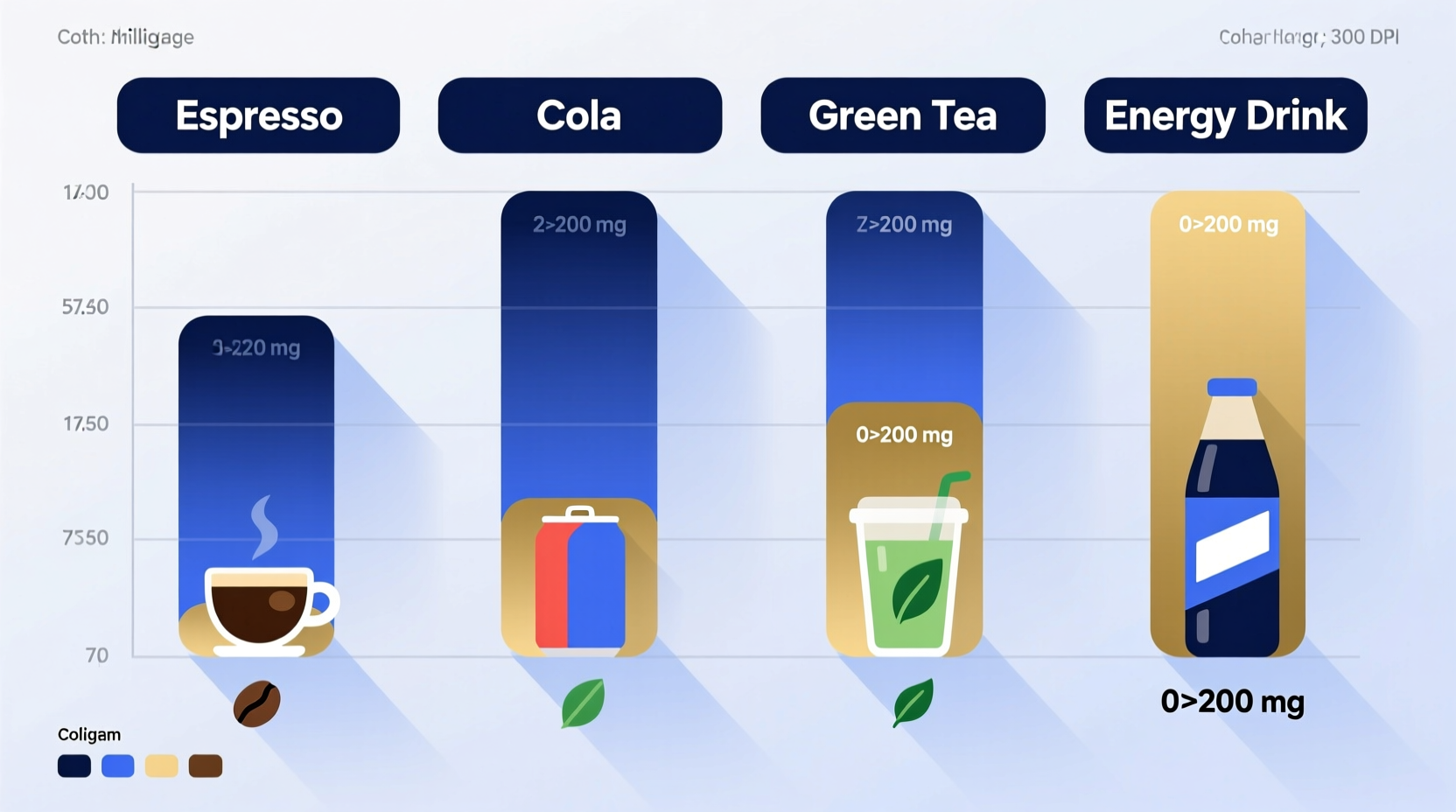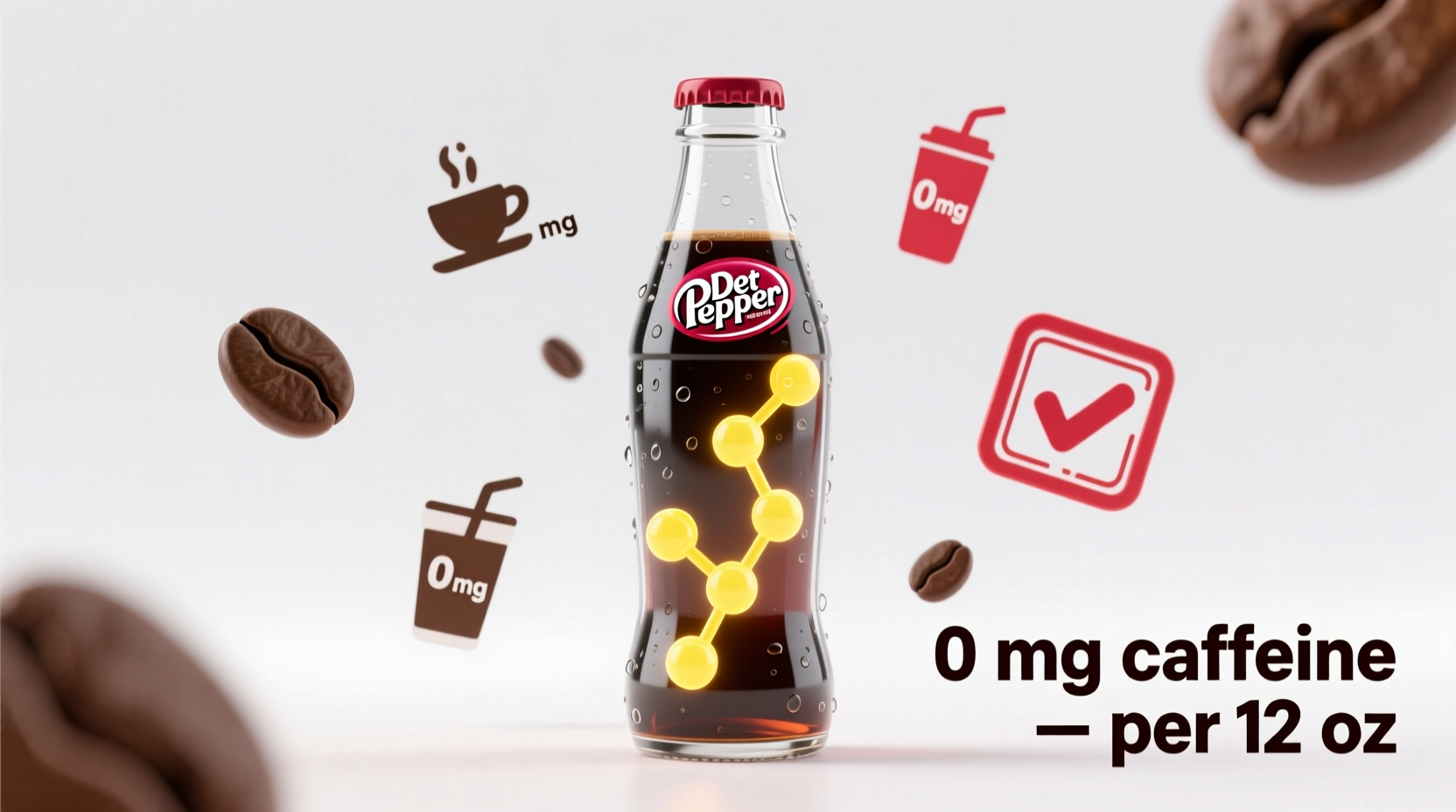Why Caffeine Content Matters for Your Daily Choices
If you're monitoring your caffeine intake for health reasons, sleep quality, or personal preference, knowing exactly how much caffeine is in Diet Dr Pepper helps you make informed decisions. This popular soda offers a caffeine boost without sugar, but understanding its place in your daily consumption is essential for maintaining healthy habits.
Breaking Down Diet Dr Pepper's Caffeine Content
According to the official Dr Pepper Snapple Group product specifications, a standard 12-ounce can of Diet Dr Pepper contains 44 mg of caffeine. This measurement remains consistent across all packaging formats including cans, bottles, and fountain servings of the same volume.
Understanding serving sizes is critical when evaluating caffeine intake. Many people consume larger portions than the standard 12-ounce reference size:
| Container Size | Caffeine Content | Equivalent To |
|---|---|---|
| 12 fl oz (standard can) | 44 mg | Half a cup of coffee |
| 16 fl oz (typical bottle) | 58.7 mg | Most energy drinks (per ounce) |
| 20 fl oz (large bottle) | 73.3 mg | Three-quarters of a cup of coffee |
How Diet Dr Pepper Compares to Other Beverages
When evaluating your caffeine consumption, context matters. Here's how Diet Dr Pepper stacks up against common caffeinated beverages based on FDA labeling requirements and manufacturer disclosures:
| Beverage (12 fl oz) | Caffeine Content | Notes |
|---|---|---|
| Diet Dr Pepper | 44 mg | Consistent across all markets |
| Coffee (brewed) | 95-200 mg | Varies by brew method and bean type |
| Cola (regular or diet) | 34-45 mg | Most major brands similar to Dr Pepper |
| Energy drink | 70-240 mg | Varies significantly by brand and size |
| Tea (black) | 14-70 mg | Depends on steeping time and variety |
This comparison comes from the U.S. Food and Drug Administration's comprehensive beverage analysis, which tracks caffeine levels in commercially available products.
Understanding Caffeine Limits and Your Health
The Centers for Disease Control and Prevention notes that moderate caffeine consumption—up to 400 milligrams daily for most healthy adults—is generally considered safe. This equals approximately nine servings of Diet Dr Pepper.
However, individual sensitivity varies significantly. Some people experience effects from much smaller amounts, while others metabolize caffeine more efficiently. Certain populations should exercise particular caution:
- Pregnant women should limit intake to 200 mg daily according to American College of Obstetricians and Gynecologists
- Adolescents should consume no more than 100 mg daily per FDA recommendations
- Individuals with anxiety disorders or heart conditions may need to restrict caffeine further

Practical Guidance for Managing Your Caffeine Intake
Tracking your daily caffeine consumption doesn't need to be complicated. Here are actionable steps to help you stay within healthy limits while enjoying Diet Dr Pepper:
Create a Simple Tracking System
Use a notes app or small journal to record each caffeinated beverage you consume throughout the day. Include the type, size, and calculated caffeine content. This visual representation helps identify patterns and prevents accidental overconsumption.
Understand Your Personal Tolerance
Notice how your body responds to caffeine at different times of day. If you experience jitters, disrupted sleep, or increased anxiety after consuming Diet Dr Pepper, consider switching to a caffeine-free alternative in the afternoon.
Read Labels Carefully
Not all Dr Pepper varieties contain the same caffeine levels. Regular Dr Pepper contains identical caffeine content to Diet Dr Pepper, while Caffeine-Free Dr Pepper contains none. Always check the nutrition facts panel for precise information.
When Diet Dr Pepper Fits Into a Balanced Lifestyle
For most adults, enjoying one or two Diet Dr Peppers daily falls well within recommended caffeine limits while providing a satisfying sugar-free option. The key is awareness—knowing exactly how much caffeine you're consuming helps prevent unintentional overconsumption that could affect sleep quality or cause other side effects.
Consider these practical scenarios where Diet Dr Pepper's moderate caffeine content offers advantages:
- Morning routine: Provides a gentler wake-up boost than coffee for sensitive individuals
- Afternoon slump: Offers refreshment without the intense caffeine spike of energy drinks
- Diet management: Delivers flavor satisfaction with zero sugar and moderate caffeine
Frequently Asked Questions
- Does Diet Dr Pepper have more caffeine than regular Dr Pepper?
No, Diet Dr Pepper and regular Dr Pepper contain identical caffeine levels—44 mg per 12-ounce serving. The caffeine content remains consistent regardless of sugar content. - How much caffeine is in a 20 oz Diet Dr Pepper bottle?
A 20-ounce Diet Dr Pepper bottle contains approximately 73 mg of caffeine. This calculation is based on the standard 44 mg per 12-ounce serving, scaled proportionally to the larger size. - Is Diet Dr Pepper caffeine-free?
No, Diet Dr Pepper contains caffeine. If you prefer a caffeine-free option, Dr Pepper offers a separate Caffeine-Free Dr Pepper variety that contains no caffeine. - How does Diet Dr Pepper's caffeine compare to coffee?
Diet Dr Pepper contains significantly less caffeine than coffee. A 12-ounce serving has 44 mg of caffeine, while the same amount of brewed coffee typically contains 95-200 mg, making coffee at least twice as caffeinated.











 浙公网安备
33010002000092号
浙公网安备
33010002000092号 浙B2-20120091-4
浙B2-20120091-4